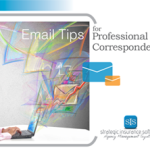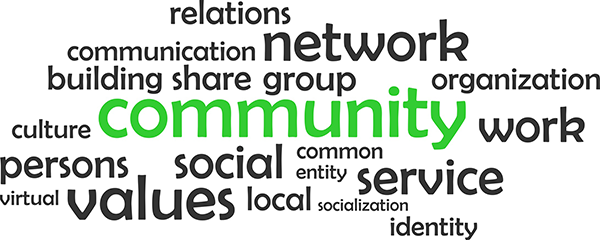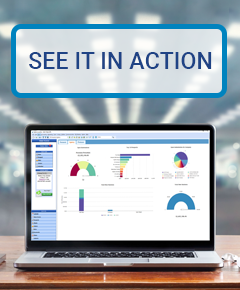Cyber Security

When it comes to data security, any business accessing the internet is at risk. In our previous post, we analyzed the increasing frequency of data breeches, which cause your agency’s records to be vulnerable. In this world of high cyber risks, it’s important to identify these risks and prepare your agency to fight against them.
The largest threats to your agency’s data and cyber security are:
1. Viruses infecting your computer system and destroying data
2. Hackers accessing your systems and stealing personal records
3. Employee negligence such as leaving systems open or losing laptops, tablets, and other mobile devices
Many are surprised to see employees listed as one of your agency’s threats, but most data breeches in small to mid-sized businesses are a result of employee negligence. In order to protect your agency from all the above threats, you need to take preventative measures.
Create checklists, guidelines, and regulations for employees: This includes insisting on passwords for all devices accessing your system. Don’t allow employees to download personal data without encrypting files, and limit who is allowed to download. Have all emails containing sensitive data encrypted as well. Finally, discourage staff from accessing your agency’s system on public WiFi as this increases vulnerability to hacking.
Invest in secure backups: Ensure all your agency’s data is protected by backing up your system frequently, and storing it at an off-site location. It’s best to have an outside vendor, ideally your agency management system provider, store your data as they’ll have the infrastructure and heightened security needed to keep such a large amount of personal information safe.
Purchase cyber insurance: Although cyber liability insurance is nothing new, not many small to mid-sized businesses have invested in this important coverage. Cyber insurance helps keep your agency protected should a data breech occur. Among other things it will provide funds for the notification and reparations mandated by the federal government, should data be compromised.
Your agency’s data is most vulnerable through your agency management system, making it your number one priority for data security. We at SIS know the importance of keeping your management system secure, which is why we partner with the likes of RPost and Expedient Data Services, to keep you and your agency protected. Find out more about SIS and our mission to serve your agency here or contact us at [email protected] today.
Agency Operations, Cyber Security, Technology Trends

Our world has changed a great deal in the past 10 years, with multiple technological advances and the rise of the digital age making sending and receiving information easier than ever. However, as with many such advances, there come an added risk. A recent Insurance Business America article reported 80% of business will experience a data security breach within 12 months.* Such a breach opens up business to loss of data, exposing the business, its clients, and employees to risks such as identity theft and potential lawsuits.
The insurance agency recognizes these digital risks, and has begun to take action to protect itself and its customers. Agencies are beginning to offer “information security”, “privacy”, or “cyber risk” coverage. Those the names may vary, the intent is the same: to protect individuals and business from cyber threats.
If you haven’t yet, it’s time for your agency to get on board. Cyber security is becoming increasingly relevant, including being named as the key initiative for 2015 by the National Association of Insurance Commissioners (NAIC). You can start to ready your agency by addressing cyber security through:
- Educating employees on good data security practices
- Employing multiple individuals to monitor threats
- Outsourcing data security management for constant vigilance
- Providing cyber liability coverage to customers
- Purchasing liability coverage for your agency
- Educating yourself on the latest agency practices and trends in cyber security
In our next series of blogs, we will explore in detail how to protect your agency and your customers from cyber threats. We at SIS are committed to investigating cyber security and implementing policies to protect our clients and their data. To find out more about how we’re working to protect you and your agency, contact us at 800.747.9273.
*Source: http://www.ibamag.com/news/vast-majority-of-companies-significantly-underinsured-for-cyber-risk-report-22436.aspx#.VVJZTbg1Kgw.linkedin
Agency Operations
 Email has quickly become one of the most efficient and effective ways to communicate with co-workers, clients, and business partners, making it almost second nature to many. These messages range from personal correspondence to client communication, so it can be easy to forget who we are talking to and lapse into colloquialisms when communicating with a client or prospect. Crafting a clear, concise, professional email takes effort and practice, and is an important part of creating and keeping good business relationships.
Email has quickly become one of the most efficient and effective ways to communicate with co-workers, clients, and business partners, making it almost second nature to many. These messages range from personal correspondence to client communication, so it can be easy to forget who we are talking to and lapse into colloquialisms when communicating with a client or prospect. Crafting a clear, concise, professional email takes effort and practice, and is an important part of creating and keeping good business relationships.
Our latest eGuide focuses on crafting emails and email etiquette, providing your agency with tips on keeping e-correspondence professional and effective. We examine what to do, and what not to do, when writing and sending emails. Starting with the subject line right down to your closing, it’s important to pay attention to what you’re writing and to whom. By paying attention to your agency communications, you’ll be on the right track to setting up the positive, lasting relationships that are such an important part of your agency’s growth and success.
For more tips on how to improve your email communications and productivity, read our Email Productivity eGuide, available for free at sispartnerplatform.com. While you’re there, check out how Partner XE’s email integration can help streamline your agency’s practices and improve agency communication. For more info on Partner XE’s capabilities, contact us at [email protected].
Community, Marketing

As an independent insurance agency owner, you know the importance and value of creating good relationships— with your clients, with community members, and with your business partners. It is relationships like these that make your agency what it is and help it grow and improve. While each of these connections is valuable, it’s also important to connect these individuals with each other and your agency.
Forming communities from these separate relationships brings benefits to both you and these communities. Such connections create a positive feeling, thus growing your agency brand. Also, these community groups create space for members to share ideas and ask questions, leading to innovation and improvement all around.
The key communities your agency should concentrate on growing and connecting are your clients and partners/suppliers. Each community needs a different level of care and support, but both share a common need to communicate regularly with each other and with you. Some great ways to connect are:
- Online forums where individuals can ask questions, give advice, and hear directly from your agency
- Social media accounts to create space for ongoing conversations between you, your clients, and your partners/Suppliers
- Regular meetings to connect people in person and help put a face to your agency
- Social gatherings for a more relaxed way to network and foster connections
- Local workgroups formed in areas with a high concentration of your clients or partners
- Community surveys to gain feedback, and open communication between your agency and your partners/clients
Creating these communities is an important part of your success as an independent insurance agency. We at SIS know the value of such community spaces, which is why we strive to foster communication and collaboration with our staff and Partner XE users alike. Our NASPA user group helps Partner XE users connect, and its national and regional conferences provide space for getting together to learn, share, and improve. It is this regular meeting and connecting that fosters a community atmosphere among our customers.
To find out more about NASPA, the Partner XE community, and how Partner XE can help you create a community of clients, contact us at [email protected].
Community, Marketing

As an independent insurance agency, your local presence is central to who you are, what you represent, and your overall value. Unlike large, national agencies, you have the ability to know your customers personally, and knowing your community is a big part of that connection. In order to know more about your local area, your agency needs to take intentional steps to become engaged in and support your community. Here are some great ways to get started:
- 1. Identify Needs
Pay attention to and find out about the biggest needs in your city or town. Is it education? Neighborhood beautification? Unemployment? Once you know the areas of need, get involved in ways to help address such issues. By taking on issues of importance, you show you care about investing in what your community really needs.
- 2. Ask Questions
Survey your customers: find out what they expect from you and what they want to see in their neighborhood. Even this simple task of asking conveys your level of concern, and shows your customer’s opinion matters to you. Use the information you gather to inform changes you’ll make and specific ways you’ll give back to your community.
- 3. Make a Plan
As always, it is important to create a plan to ensure your whole agency is involved in your community on a regular basis. Start with the goal in mind, such as improving your local elementary school. Your plan could involve organizing fundraisers, volunteering at school events, or regularly collecting supplies such as pencils and notebooks for donation. Make sure your plan is sustainable – meaning your agency has the time and funds to be involved to the degree you decide.
- 4. Partner Up
Get to know and work with organizations and individuals who are well known in your locality. This could be community government members, local nonprofits, or community activists. Take the time to build relationships with these individuals and organizations, as they are your key to connecting and being in the know about what is going on in your community.
- 5. Spread the Word
Once you’ve started engaging in and meeting the needs of your community, make sure your customers and potential customers know. Blog about your involvement, include references in your advertising, and get your agency’s name on charity event banners and flyers. Don’t be shy! At the least, be sure you include a page on your website detailing your commitment to your community and how you show it.
Once you get to know your area and engage in community happenings, your brand awareness will increase and you’ll find your agency buzzing with new leads. Each lead is a potential customer, but conversion from lead to customer rests on the relationship you build with that individual.
Our Partner XE has a host of capabilities to help you keep track of new leads, and stay on top of your current customers relationships. By building and fostering these relationships, you’ll create life-long customers, meaning stability and longevity for your agency. To find out more about how Partner XE can help you create these lasting customer relationships, contact us today at 800.747.9273.






